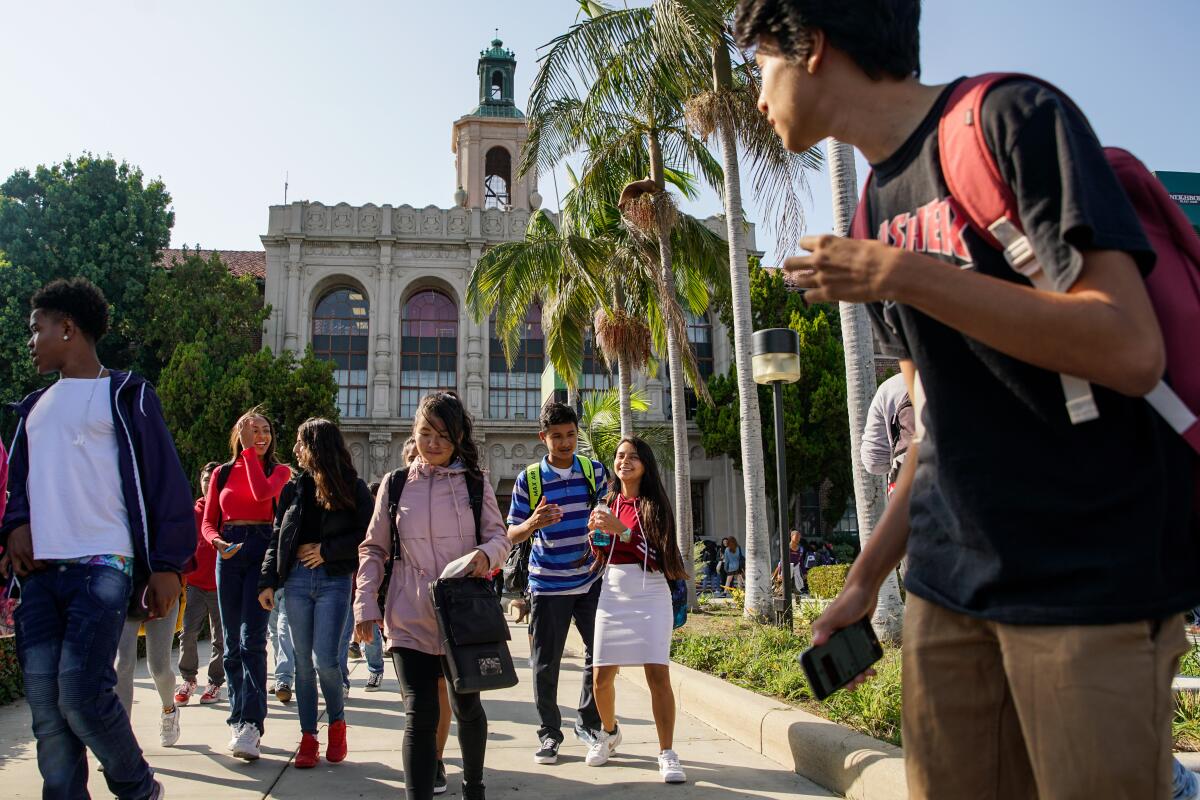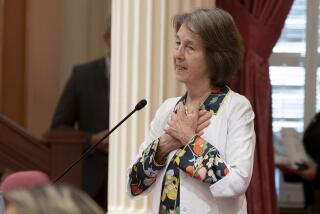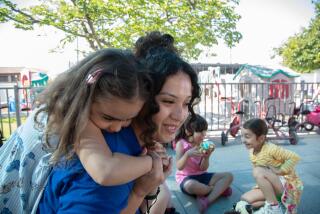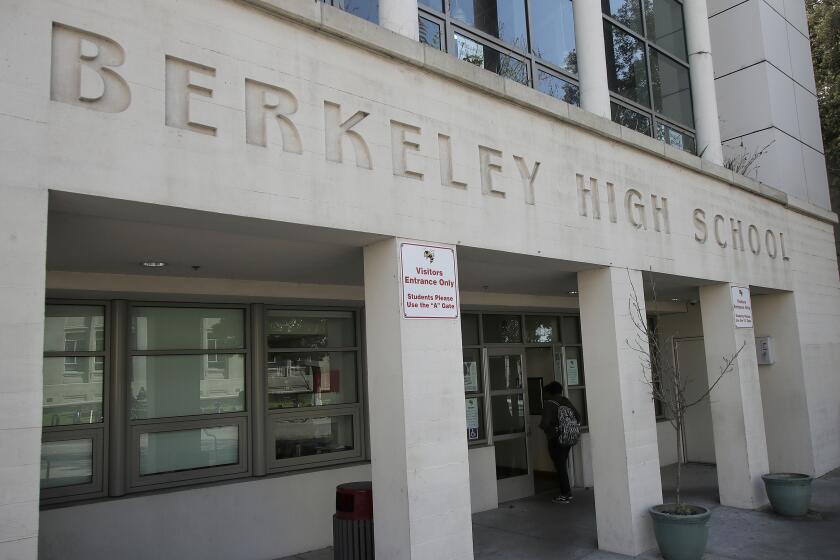Will later school start times mean more sleep or more hassles for California?

Atussa Kian, 17, a senior at Arcadia High School, says she and many classmates are short on sleep because of schoolwork — an extra half-hour of shut-eye would be welcome.
“It is quite common to hear others complain about their lack of sleep or the all-nighter they had to pull the night before,” Atussa said. “Students are encouraged to take up time-consuming extracurriculars and challenging schedules, which is decent advice. However, the physical and mental health of students is rarely factored into the discussion.”
Claire Judson, a 17-year-old junior at Claremont High School, said starting school later wouldn’t make much of a difference for her. She chooses to get to school at 6:50 a.m. to take advantage of extra coursework.
California students, their parents and educators woke up Monday to a new law that will dramatically impact their morning routines. The state has become the first in the in the nation to mandate that public middle schools can start no earlier than 8 a.m. and high schools no earlier than 8:30 a.m. The law, signed Sunday night by Gov. Gavin Newsom, has touched off mixed reactions — cheers from the sleep-deprived as well as official worries about impending logistical hassles. It will be phased in over the next three years.
Groups in support include the American Academy of Pediatrics, the California Medical Assn. and the California State Parent Teacher Assn. They say that research supports the idea that adolescents will be healthier and learn better with a later start to the school day. Opponents, including the California School Boards Assn. and the California Teachers Assn., argued that schools and districts should retain the authority to set school times based on local needs.
“Start times are local decisions, which should be made by locally elected boards, based upon input from parents, students, staff and members of individual communities,” said Chris Eftychiou, public information director for the Long Beach Unified School District.
He added that Long Beach parents opposed later starts in every school when the idea was considered seven years ago. In Long Beach, most middle schools begin at 9 a.m. Most high schools, however, start at 7:50 a.m.
One consideration is managing the transportation of students with disabilities. “We only have so many buses,” he said.
Los Angeles Unified, the state’s largest school system, has run a pilot project on later start times at four middle schools, which start at 8:30 a.m. or 8:45 a.m. Most district secondary schools start at about 8 a.m.
One of them is Johnson STEM Academy in Westchester, where 12-year-old Morgan Scivoletto, a sixth-grader, likes the change.
Just months ago, as a fifth-grader at another school, Morgan was in bed by 8 p.m. and up at 6:50 a.m. He was often moody in the morning and tired at school, where concentrating was hard, according to both Morgan and his mother, Claire Scivoletto.
Now he gets the same amount of sleep but wakes up later — in bed by 9 p.m and up at 7:50 a.m. That shift has made a huge difference, they said.
“When I used to wake up, I was always tired for some reason, and now I feel really great in the morning,” Morgan said after school Monday.
Still, two years of data show no conclusive benefits on student achievement, attendance, enrollment or suspensions, said Alison Yoshimoto-Towery, the district’s interim chief instructional officer.
At Hamilton High School in Palms, where many students rise especially early and arrive by bus, reaction was mixed to later start times.
One 13-year-old said it was exhausting to wake up at 5 a.m. every day to catch the bus from the Crenshaw area. With a later start, “I’d probably get better grades because I wouldn’t be so drowsy,” he said.
Another freshman said she’d need an extra hour to get enough sleep to make a difference.
Jesus Navarrete, 17, lives in Koreatown and his mom drops him off. Most days, he said, “I barely get here on time.” Three tardies equal an absence, and as a senior, he’s allowed only seven absences: “You can see how it adds up.”
Navarrete usually goes to bed around midnight and wakes up at 6, when he just has time to brush his teeth, get dressed and finish schoolwork.
Some students said a later start wouldn’t change much because their parents would still drop them off early to get to their work.
Stephanie Ayala, 16, said she wouldn’t want to start later because of afternoon activities, such as her community service at a local hospital.
L.A. school board President Richard Vladovic said the change would pose “logistical concerns in terms of after-school athletics, but it may have merit.”
School board member Monica Garcia said she was concerned about new costs that would not be picked up by the state.
Veteran administrator Sharon Robinson, chief of staff for board member George McKenna, challenged whether the research fully took into account the role that technology played in sleep deprivation, “students being on their devices all night, playing games, texting, etc.”
District schools already have had flexibility over schedules as long as students receive the legally required instructional time.
At Social Justice Humanitas Academy in the San Fernando Valley, school starts at 8:30 a.m. Not only that, but the first period of the day also has an extra 15 minutes built in for students to eat breakfast or talk about the lesson of the day.
“If you get a kid rested and with food in them, the rest of that time can be more effective,” Principal Jeff Austin said.
“Getting a kid to school or dealing with how late the day goes, those are all technical fixes,” he said, adding that the school opens at 7:15 for parents who need early drop-off. “But you can’t change the adolescent brain. ... I can’t make a kid be awake at 7:45 a.m.”
Atussa Kian and Claire Judson are members of the Los Angeles Times High School Insider team of students who are interested in journalism.
More to Read
Start your day right
Sign up for Essential California for news, features and recommendations from the L.A. Times and beyond in your inbox six days a week.
You may occasionally receive promotional content from the Los Angeles Times.









